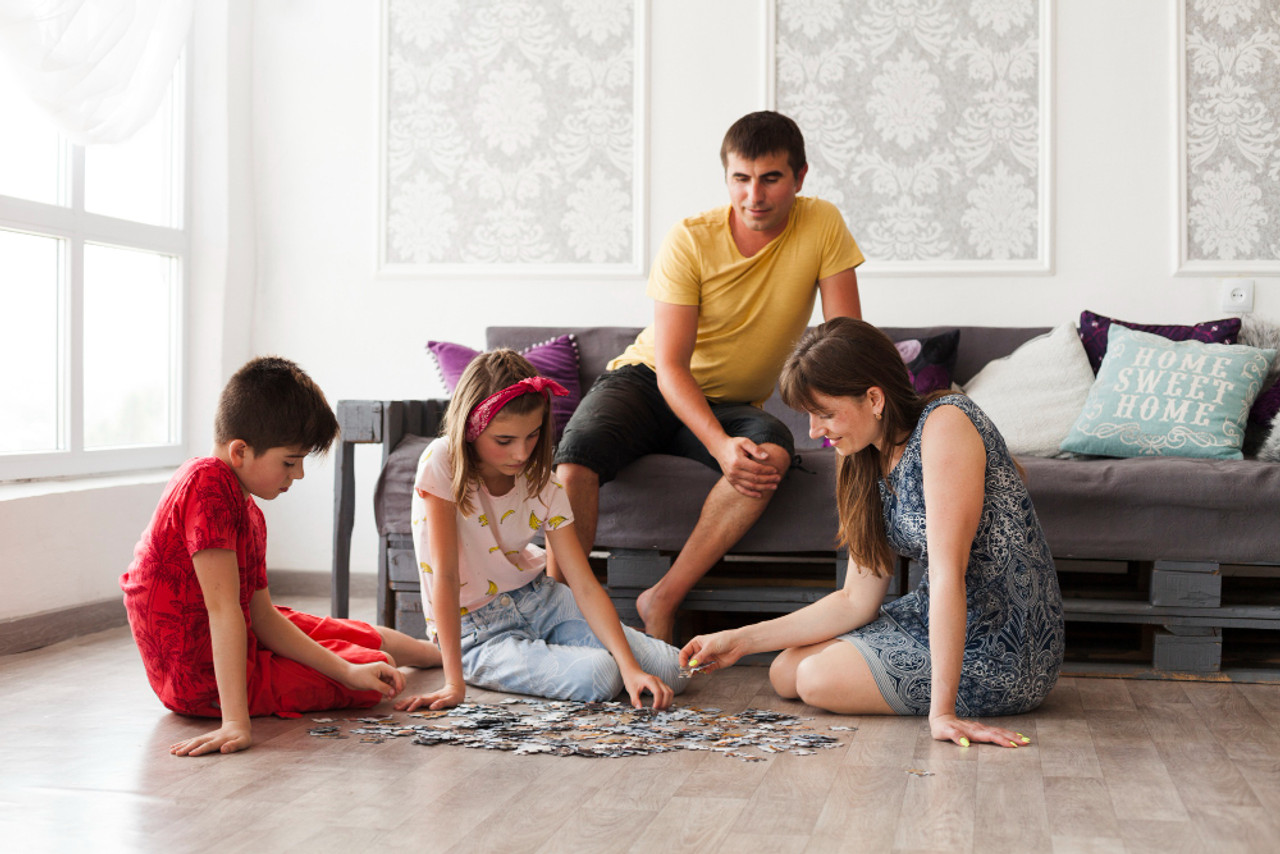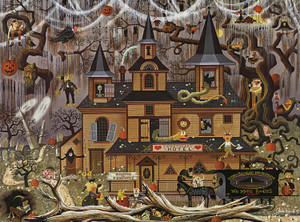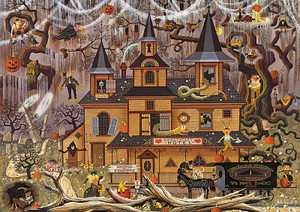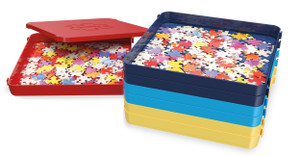Posted by Buffalo Games on Apr 29th 2022
Are Puzzles Good for Anxiety?
The COVID-19 pandemic changed our lives in many ways.
Many of us had to move into remote work situations, at least temporarily. In addition, many families found themselves with children learning remotely. Some people lost their jobs and had to find new work opportunities and even change careers permanently.
On top of it all, we were separated from family, friends, and normal socialization for weeks or even months in some cases.
The result was unprecedented stress, anxiety, and other mental health concerns. In the first year alone, anxiety and depression reportedly increased by an estimated 25% worldwide. How did people cope early on and throughout the pandemic?
In addition to devouring streaming media, people revived analog pastimes, including puzzling. As early as April of 2020, it was reported that celebrities like athletes and entertainers were engrossed in jigsaw puzzles for adults, just like everyone else.
What spurred this resurgence, and why has it held strong? People are rediscovering the joys of unplugged entertainment and the many benefits it could have for mental health.
Puzzles Require Concentration and Mindfulness
On a basic level, assembling 1000-piece jigsaw puzzles can serve as a distraction.
Whether you found yourself caught up in the 24/7 news cycle, ran out of streaming shows to watch, or simply missed family, friends, and your daily routine, everyone can agree that distractions from daily life were a mental and emotional necessity during the pandemic.
Puzzles were particularly great distractions from the heightened stress of the pandemic situation because they demand some level of concentration and mindfulness.
You have to dedicate your faculties to tasks like sorting, seeking patterns, and working toward small goals (finishing the border or smaller images within the larger puzzle) to complete the overall goal.
The process can be a meditative relaxation and a fun and fulfilling activity. Working to assemble a 2000-piece puzzle like Starry Night could help you forget about the worries of the world and problems closer to home as you focus on a completely unrelated task.
Amazingly enough, these kinds of calming activities can reduce the fight or flight response and cortisol — the stress hormone. As you progress, it should also increase feel-good endorphins. Accomplishing a task, especially one that requires some time and focus, can help you feel happier and more satisfied.
It’s a Familiar and Comforting Retreat
The world comes at us pretty fast these days, and the pandemic left many with their lives and daily routines upended. For months, there was rampant confusion, conflicting information, and a hefty dose of fear and uncertainty.
While 500-piece puzzles can’t necessarily solve all of the world’s problems, they made a huge difference for many households struggling to maintain normalcy.
Most of us are familiar with jigsaw puzzles because we started doing them as kids. For youngsters, puzzles can be a great way to work on motor and cognitive skills, spatial reasoning, and so on.
While some people maintain a lifelong love of puzzling, even signing up for subscription services, others replace this leisure activity with technology, or they simply don’t make time for the games and puzzles they enjoyed as children.
However, the comfort of a familiar activity can be an incredible pick-me-up in times of stress. For many people, puzzling carries positive associations with quality family time, personal successes, and fun in general, making it an ideal pursuit to return to as a stress-buster.
You Can Do Them Solo or with a Group
Puzzles are a unique opportunity to spend some time finding a little inner peace or connecting with family or friends. The pandemic introduced a contradictory set of challenges for many people.
On the one hand, having a spouse, children, or intergenerational family in the home — working and schooling remotely — could result in little privacy or alone time. However, sheltering in place also meant a lack of in-person socialization with extended family, friends, colleagues, and even strangers.
In both cases, puzzling creates an outlet for feelings of stress and frustration. Even doing simpler, 300-piece puzzles on your own could allow you to reboot your brain and emotions by focusing completely on a relaxing and fulfilling activity.
Alternately, you could tackle a puzzle with family or friends to restore interpersonal bonds and stave off loneliness. One study showed that building puzzles as a group can help create a cooperative atmosphere that reinforces a team mentality.
Puzzles can help relieve stress individually and within a group, helping participants feel refreshed and more connected to those around them.
Jigsaw Puzzles Are Suitable for All Ages
You and your spouse may want to binge the new season of Stranger Things or The Morning Show, but that doesn’t mean these leisure activities are appropriate for the whole family. You might be okay scrolling Facebook for hours, but this isn’t ideal for children, and it isn’t conducive to in-person socialization or family togetherness.
Whether you tackle 100-piece puzzles that even small kids can participate in or you and your teens go for something much more complex, like a massive Charles Wysocki or challenging Star Wars puzzle, this is an activity the whole family can enjoy.
Considering how hard the pandemic has hit kids and teens, many families may be searching for tools to reduce anxiety.
New studies show that the stresses of the pandemic, including social isolation, have put young people at greater risk for mental health concerns and suicide. With that being said, doing puzzles could have a range of mental health benefits, including stress reduction — especially when undertaken as a group activity.
Puzzles Are Better than Ever
If you visit a modern puzzles store, you’ll discover a whole new world of challenges that speak to various interests. There's something for everyone, with options for classic works of art, movie posters, idyllic scenery, and more. And with new technologies (like die-cutting), more complex puzzles are commonplace.
Today, we have largely reemerged from imposed isolation, but that doesn’t mean we have to give up the good things that came from an impossibly difficult situation.
With so many 100, 500, and 1000-piece puzzles to choose from, you not only have a tool to contribute to your mental well-being, but you can also relax, be entertained, and connect with loved ones.


















































